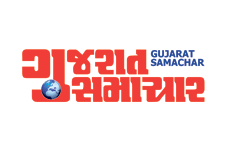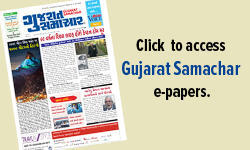Britons enjoy travelling the world. When Covid-19 struck, killing several and affecting thousands, UK and several other countries began enforcing lockdown measures. As the international borders began closing, the UK government started rolling out plans to bring its citizens home. The first flight departed from Wuhan on 31 January. On Saturday 9 May 2020 the 30,000th passenger returned home on a special charter flight from Amritsar in northern India. Those who were permitted to return included non-British spouses and family members of UK citizens.
Over 30,000 British travellers have now returned to the UK on 142 special government charter flights from 27 different countries and territories since the outbreak of coronavirus. The Foreign Office worked round the clock with the airline industry and host governments across the world to help bring back British travellers as part of a major plan announced by UK Foreign Secretary Dominic Raab on 30 March. Up to £75 million have been made available for special charter flights to priority countries, focusing on helping the most vulnerable travellers. It has required enormous international effort, with teams in the UK and in British Embassies and Consulates around the world working 24/7 to help overcome this unprecedented challenge.
So far, charter flights from across the globe including Bolivia, India and New Zealand have brought back British nationals. More than 13,500 British nationals have returned from India on 58 flights since 8 April. Over 4,000 British nationals on 19 flights have returned from Pakistan since 20 April, and around 1,600 British nationals from Bangladesh have returned since 21 April 2020.
The majority of these efforts were supported by the Foreign Commonwealth Office (FCO) along with airlines and foreign governments to keep vital transit hubs open and ensure that domestic restrictions did not pose a barrier to getting people home. Hence, UK nationals have also been a part of the ‘Vande Bharat Mission’, where Britons have been flown into the UK by Government of India, due to the longstanding relation between the two countries.
On Tuesday 31 March, the FCO in collaboration with the Indian government airlifted hundreds of British nationals stranded in India through two chartered flights from Kolkata and Goa. Of the 115 passengers repatriated from Kolkata, 59 of them were German nationals and 16 Britons which included junior doctor and Miss England Bhasha Mukherjee, who has her roots in Kolkata, India. This was a pan-European effort undertaken by the UK government before a direct chartered flight started between UK and India.
Jan Thompson, the Acting High Commissioner to India was at the helm of organising these repatriation flights from India, as she tweeted and responded to many queries personally. She was assisted by the government’s regional representatives within India, and Nick D Low, the British Deputy High Commissioner in Kolkata played a huge role.
Speaking to Gujarat Samachar, Mr Low said, “The United Kingdom organised special charter flights to bring passengers from 32 locations across India. It was an immense undertaking, fraught with all manner of complexities, but it was also the story of so many individuals, each with their own circumstances, needs and feelings. Being at the heart of that and treating each of those travellers as I would want a member of my family to be treated was special. I’ve received wonderful messages of thanks which show how much it meant to those we helped.”
Passengers from India share their experience
93-year-old mother of Millie Banerjee CBE was one of those being repatriated from Kolkata, India on 19 April. Maya RayChaudhuri lives in London but was in Kolkata for her winter break as every year, when India announced lockdown and closed its international border. While free movement in Kolkata remained a problem, the British High Commission organised for Maya’s pick up from home and taken to the airport. Speaking to this newsweekly, Millie said, “The staff and Nick Low personally looked after her very well and the airport staff were wonderful as were the British Airways staff.”
Monica Lee from Surrey has her family’s farm just outside Rajkot in Gujarat, India. Though Monica is born in the UK, her parents originally come from Gujarat. She went to India in February and was scheduled to come back to the UK on 24 March. Her husband Jay Lee told this newspaper, “India went into lockdown before us, and all flights and visas were cancelled. My wife was stuck there and couldn't find any flights to get back. She spent several weeks living in the farm. Monica registered for the repatriation flights and she was placed on a priority list. The UK announced the last repatriation flight from Ahmedabad that left on 13 May and luckily, she got a seat on the flight. She was provided a bus service to the airport.”
Dr Debalina Bose lives in Southampton. She is a trainee doctor currently working in NHS Southampton. She went to Kolkata on 26 February to be with her family for a while and was scheduled to come back to UK on 23rd March, but unfortunately due to the lockdown in India she was unable to return.
She said, “There was a flight scheduled from Kolkata on 19 April to repatriate British nationals. I contacted the British High Commission after the lockdown asking for help to return to UK, since my husband was in the UK and I needed to get back to work, given the crisis due to Covid-19 situation.
“I wasn't on the passenger shortlist as I am not a British national but only have Tier 2 working visa. I contacted Nick and explained my entire story. He managed to arrange my return on 19 April successfully.”
Dhriti Hajra from Hertfordshire took the charter flight back from Kolkata with her 2.5-year-old son. She was in India since February visiting her mum in Kolkata. “It was very emotional as the decision to travel with a toddler amidst a pandemic and leaving behind my elderly mum- both had very high stakes. But we knew this would be the only opportunity to return to the UK.
“All the arrangements were taken care of very efficiently with safety measures in place. It was a huge operation and a complicated one because people were travelling from other states too. The journey was certainly a memorable one.”
Leeds resident Samya Bhattacharya missed the repatriation flight on 19 April from Kolkata, but reached UK using a Vande Bharat flight from Delhi.
“I repeatedly communicated with the British High Commission in New Delhi and Kolkata, after missing the flight from Kolkata. I received a message from the Kolkata Deputy High Commission that Air India flights that were arranged by the government of India to bring back Indians from the UK (Vande Bharat Mission) would be used to repatriate stranded British nationals in India to the UK,” told Samya.
He took a train from Howrah to New Delhi and waited in an airport hotel for two days. “The British High Commission offered us pick-up and drop-off service. I flew out on 15 May and after reaching London, took a train to Leeds from King’s Cross station. There was tremendous joy reuniting with my family, especially my daughter.”
Similarly, Sourabhi Giri from London was visiting her family in Meerut, Uttar Pradesh since February. Though she has a Tier 2 visa, with some help from British Deputy High Commissioner Nick Low, and much preparation, which included communication with the UK Home Office, she took a flight arranged by the government of India to repatriate stranded Britons. She flew to London Heathrow from New Delhi on 10 May.
British Gurkhas rescue Brits stuck in Nepal
When the coronavirus crisis broke out, 109 British nationals found themselves stuck in isolated parts of Nepal. Their remote locations, and the strict lockdown measures, meant the travellers were unable to reach the three charter flights sent to repatriate British nationals back to the UK last month.
Mobilising the British Gurkhas Nepal network, based in Kathmandu, Pokhara and Dharan, and using their local knowledge, UK Embassy staff and soldiers mapped out where the stranded British travellers were, and devised a plan to reach them.
Over three weeks, the soldiers, embassy staff and locally employed drivers, travelled more than 4,000 miles through the Himalayas to 13 different districts, negotiating river crossings and landslides, to reach the tourists scattered across dozens of mountainous towns, villages and national parks. In some instances, the soldiers and drivers were forced to set up camp for the night on the side of the road because of the long and hazardous journeys.
Sergeant Prakash Gurung, of 29 Regiment, Royal Logistic Corps, rescued a British national from Manang, located in north-west Nepal, before driving solo and travelling nine-and-a-half hours back to Kathmandu to catch a UK charter flight. Sgt Gurung, who by day is a postal operator, volunteered to complete the 9.5-hour drive to Manang, which nearly had to be aborted halfway due to a landslide, traversing single-track, treacherous roads to reach the stranded traveller.
Sgt Gurung, who has completed three tours of Iraq, as well as serving in Afghanistan, the Middle East, Kenya and Germany, said, “I stepped up to volunteer because I thought it was a part of my job. Helping people in dire situations gives me a sense of satisfaction. The gratitude people expressed in messages has encouraged me to do more of this sort of work.”
As well as bringing home British travellers on the charter flights, around 70 soldiers and their dependants from different Regiments of the Brigade of Gurkhas and wider British Army, who were in Nepal on leave and holiday, returned to the UK to join the fight against coronavirus.
British Armed Forces offer help
UK’s Armed Forces have been helping communities right across the UK, building emergency hospitals, delivering vital supplies, helping public services, local authorities and emergency services and flying critical patients to hospitals. On 18 March the Defence Secretary announced a Covid Support Force to assist public services with their response to the coronavirus outbreak. There were 20,000 Armed Forces personnel stood at readiness to assist civil authorities, of which nearly 4,000 have already been deployed. They are also supporting the Government’s efforts to increase testing.
They have also distributed 1.18 bn items of PPE to NHS between 22 February and 8 May. British Armed Forces’ help has taken a number of different forms including planning support, ambulance support and oxygen tanker drivers. Nearly 400 personnel have been mobilised to help support ambulance services across the UK. So far, the military are providing support to the South-Central Ambulance Service NHS Foundation Trust, the Welsh Ambulance Services NHS Trust, the London Ambulance Service NHS Trust, the East England Ambulance Service and the Scottish Ambulance Service.
33-year-old Major Chantelle Miller of the Royal Military Police and her wife of nearly three years, 34-year-old Staff Sergeant Tara Miller have both signed up to and been deployed by the Armed Forces Covid Support Force. Tara helped the South-Central Ambulance Service and while Chantelle supported the Cardiff and Vale Health Board. Usually the couple live in Larkhill base military camp near Salisbury. While Tara is still there, Chantelle has moved to Cardiff.
UK in vaccine race to fight coronavirus
The Department for International Development (DFID) tackles global challenges of our time including poverty and disease, mass migration, insecurity and conflict.
UK-based scientists, such as those at the Liverpool School of Tropical Medicine are playing key roles in the global response to this deadly coronavirus. Researchers at Oxford University, funded through the Coalition for Epidemic Preparedness Innovations, have now progressed to clinical trials with funding from the UK government’s Vaccines Taskforce – which is also funding a vaccine trial starting soon at Imperial College.
On 23rd April, Oxford University initiated the first human trial in Europe of a coronavirus vaccine and Chandra Datta is the only Indian-origin to be part of the team that has manufactured the first batch of vaccines. Currently a Quality Assurance Manager, Trainee Qualified Professional in Clinical Bio-manufacturing Facility, Chandra started working in her current role at Jenner Institute, University of Oxford in April last year and has recently been part of the team manufacturing the coronavirus vaccine. In her role, Chandra has been responsible for quality checks, proper labelling and dispatch of the vaccine.
UK’s top researchers rapidly working to find a coronavirus vaccine will also benefit from £84 millions of new government funding. The funding comes as Oxford University agreed a global licensing agreement with AstraZeneca, the UK-based pharmaceutical company, for the commercialisation and manufacturing of their potential vaccine. This means that, if the Oxford vaccine is successful, AstraZeneca will work to make up to 30 million doses available by September for people in the UK, as part of an agreement to deliver 100 million doses in total.
Once a vaccine is found, delivering it globally will be the next big challenge. To help that, the UK government has invested the equivalent of £330 million a year for the next five years in Gavi, the global vaccine alliance that delivers vaccines in 68 of the poorest countries around the world.


